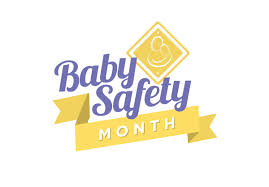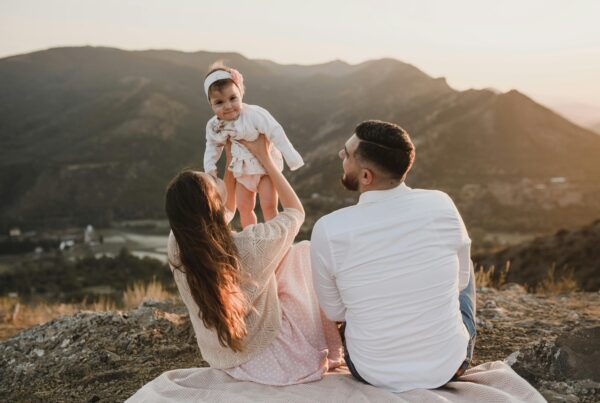By: Stephanie Duhon
While young babies are born with several reflexes that help them eat, breathe and react to their new surroundings, they are completely dependent on their parents to take good care of them. One of the most important jobs a new parent encounter is keeping their baby safe. Since 1991, The Juvenile Products Manufacturers Association, Inc. (JPMA) has designed September as Baby Safety Month, to remind and educate parents and caregivers on the importance of baby safety.
The Consumer Product Safety Commission (CPSC) recalls about 400 items a year. About 170 of those items (or 43%) are for children’s products. While that’s a fairly small number compared to how many baby items are sold annually, it’s still alarming because it means parents likely have at least one recalled item in their home at any given point in time. But don’t panic yet! Not all recalls are related to an infant death. Many times all you need is an extra piece to ensure safety or the manufacturer did not include adequate warning information. But all parents should keep an eye on recalls to ensure their child’s toys and furniture are as safe as possible. It’s especially important to stay on top of recalls for cribs, baby bath/bath seats and playpens because, according to JPMA, most infant deaths are associated with those items.
According to wemakeitsafer.com, between 2007 and May 2012 there were:
*24 recalls for strollers (6 million units)
*41 recalls for car seats (7 million units)
*13 recalls for high chairs (4 million units)
*9 recalls for playpens (2 million)
*3 recalls for baby monitors (2 million)
and *56 recalls for cribs (10 million units)
In fact, did you know it is illegal to sell a crib made before June 2011, even if that crib has not been recalled?
If you are concerned an item you own may be recalled, you can check by visiting wemakeitsafer.com and filling in the requested information.
It is especially important to check for recalls before buying or borrowing second-hand baby gear. While it’s a great money saving move and also good for the environment, there is no such thing as a deal worth compromising your baby’s safety. Always inspect a second-hand item before making the purchase and check to ensure it has not been recalled.
Here are some great tips from the JPMA when using any baby product:
*Always use a product under adult supervision
*Read the instructions and warnings that come with the product. If it says to only use on a flat surface, then don’t risk using it any other way.
*Be sure to periodically inspect the item after it’s been in use for a while. Make sure no parts are missing or broken and that everything is working as it should.
*Once your child outgrows the item, such as a baby swing or bouncer, either save it up for future use or get rid of it. Don’t leave it out once your child starts trying to climb on things. They could get hurt.
You can find more tips on JPMA’s website and please, share them with your family and friends.
Throughout the month of September, The Motherhood Center will bring you blogs covering a variety of topics related to baby safety, including:
*Babyproofing Your Home
*Tips on buying safe second hand baby products
*Car Seat Safety
*Importance of taking an infant/child CPR Class
*Bath time and Water Safety
*Crib Safety
*All About Recalls
Sources:
JPMA.org
Wemakeitsafer.com



